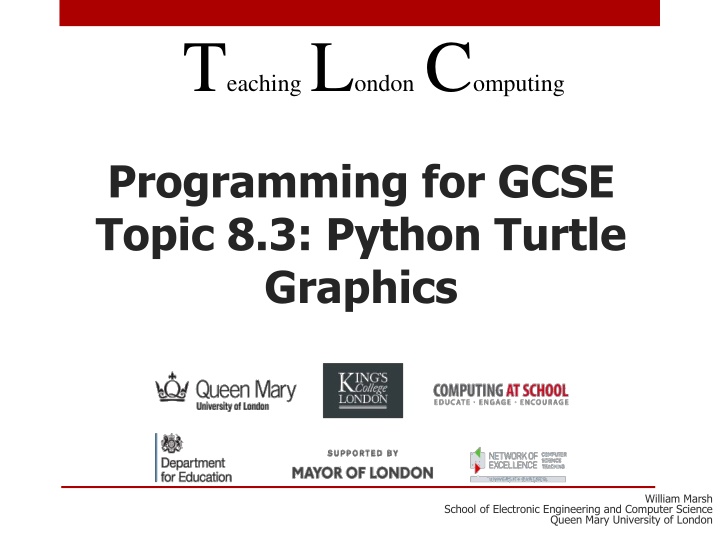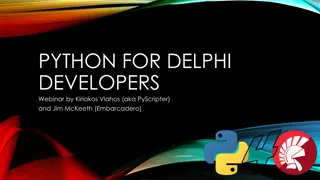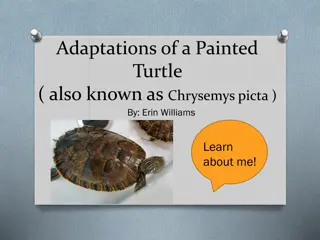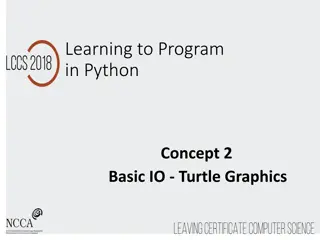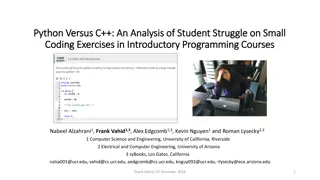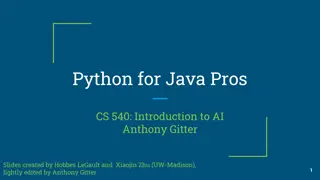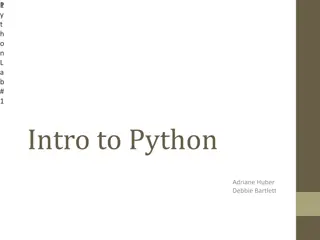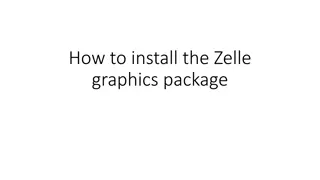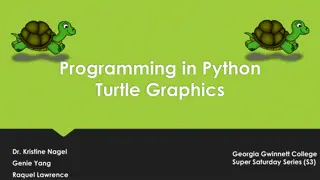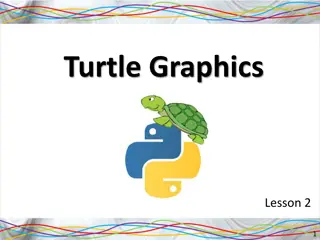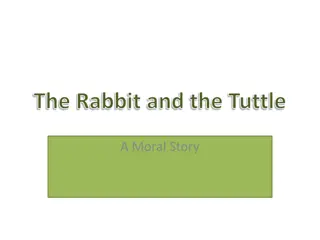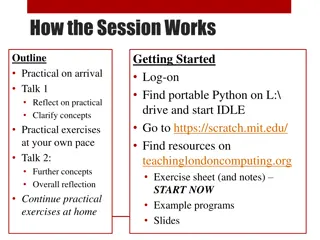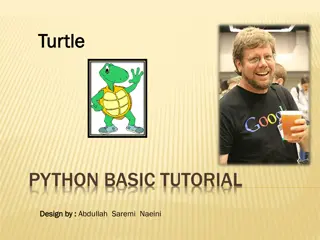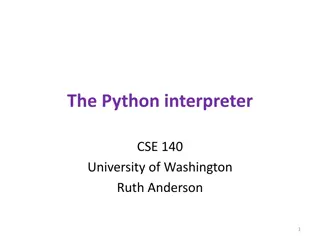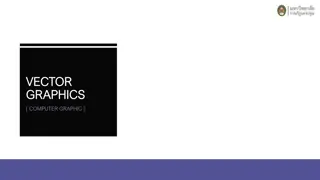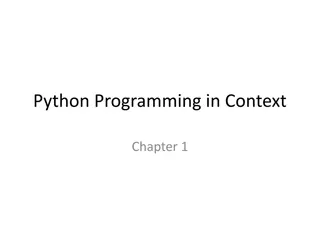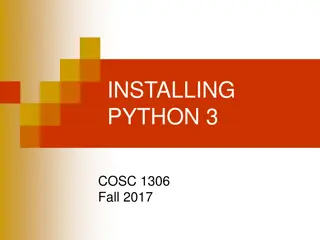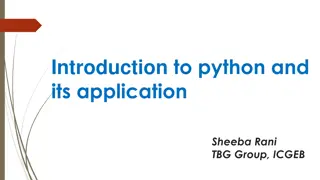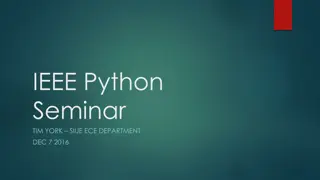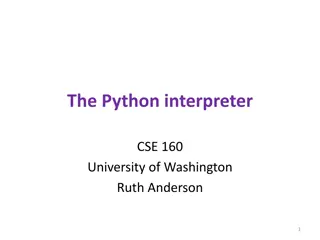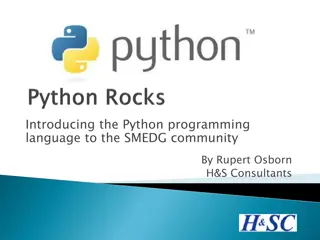Introduction to Python Turtle Graphics for GCSE Students
Explore the concept of turtle graphics in Python programming through visual representation and simple animations. Learn about the principles of turtle graphics, advantages, limitations, and how to use it effectively for learning programming. Discover the potential challenges and solutions offered by working with shapes as data in Python Turtle Graphics.
Download Presentation

Please find below an Image/Link to download the presentation.
The content on the website is provided AS IS for your information and personal use only. It may not be sold, licensed, or shared on other websites without obtaining consent from the author.If you encounter any issues during the download, it is possible that the publisher has removed the file from their server.
You are allowed to download the files provided on this website for personal or commercial use, subject to the condition that they are used lawfully. All files are the property of their respective owners.
The content on the website is provided AS IS for your information and personal use only. It may not be sold, licensed, or shared on other websites without obtaining consent from the author.
E N D
Presentation Transcript
TeachingLondon Computing Programming for GCSE Topic 8.3: Python Turtle Graphics William Marsh School of Electronic Engineering and Computer Science Queen Mary University of London
Aims Outline the idea of turtle graphics Evaluate turtle graphics for learning programming
PRINCIPLESOF TURTLE GRAPHICS
from turtle import * pencolor('red') pensize(5) fillcolor('yellow') begin_fill() forward(80), left(120) forward(80), left(120) forward(80), left(120) penup() forward(150) circle(80) end_fill() done()
from turtle import * pencolor('red') pensize(5) fillcolor('yellow') Pen size and colour Turtle movement begin_fill() forward(80), left(120) forward(80), left(120) forward(80), left(120) Fill start and end penup() forward(150) circle(80) end_fill() Stop drawing done()
Documentation See chapter 23 of Python library Functions: simpler, as shown Object-orient methods: more flexible Simplified extract in the practical sheet Omits synonyms More complex features
HOW USEFUL IS TURTLE GRAPHICS? Could use turtle graphics as an introductions
Advantages Visual Picture and simple animation Text I/O included Not really for graphical UI or games Problem solving and creativity Functions Obvious need for decomposition into functions
Limitations Less focus on variables: very important concept Many problems can be solved (badly) without control structures (if and loops) Not a great match to GCSE syllabus
Example Challenge Problems Handle shapes as data Save in file E.g. ['square', 100, 30, 40] size, x, y Do transformations on shapes Rotate Reflect Display data E.g. bar or line graph
Summary Turtle graphics is simple and visual Consider it as an alternative route for transition between visual (e.g. Scratch) and textual programming
